Discover the Secrets of Growing Premium Cannabis at Home
Are you tired of overpaying for subpar cannabis at dispensaries? What if I told you that you could grow your own top-shelf buds right from the comfort of your own home, 100% legally? My name is Adam, and I've been successfully cultivating cannabis for over a decade. Through trial and error, I've developed foolproof methods for growing potent, flavorful buds that rival anything you'd find in a dispensary.
Who Is Cannabis Khan?
Discover the world of growing your own top-quality cannabis right at home with our "Cannabis DIY" online course. This step-by-step program will take you through everything you need to know to grow the best buds, from setting up your grow space to harvesting and drying your plants.
Our teachers will walk you through all of the important skills and tricks to get a huge crop of strong, tasty bud.
You'll find out how to pick the best strains for your setup, grow your plants using natural and organic methods, and give them the perfect food and care to get the most buds possible.
As you go through the course, you'll have access to detailed videos, fun quizzes, and a group of friendly growers who love cannabis as much as you do. You can expect 1:1 hands on support from our experienced mentors, who will be there to help you with any questions or problems you might have along the way.
By the time you finish the "Cannabis DIY" program, you'll have the knowledge and practice to grow amazing cannabis at home, all by yourself. Whether you're totally new to growing or you've tried it before and want to get better, this course will help you become a master cannabis grower and enjoy your own top-quality buds for years to come.
The CK Blog

Exploring the Potential Benefits and Drawbacks Between Cannabis and Sleep
“The effects of cannabinoids on sleep have been known for centuries, but only in the past decades have we begun to understand the complexities of this relationship. While cannabis can alter sleep architecture, its potential to address underlying causes of sleep disturbances, such as pain or anxiety, makes it an intriguing area for sleep research.”
- Dr. Ethan Russo, Neurologist, Psychopharmacology Researcher, and Former Medical Director of PHYTECS
In many of our fast-paced society's, a good night's sleep can sometimes feel like an elusive luxury, something you are lucky to get every once in a while.
Unless you're like us over here at Cannabis Khan and you make sleep a priority.
As more people struggle with sleep issues, interest in natural remedies has surged through the roof in recent years, and cannabis, unsurprisingly, has emerged as a topic of intense curiosity.
Used for centuries as a sleep aid in traditional medicine, cannabis is now at the forefront of modern sleep research. But does it really help, and are there any drawbacks? Let's dive into the complex relationship between cannabis and sleep and find out.
Understanding Sleep and the Endocannabinoid System
Before we explore how cannabis might affect sleep, it's crucial to understand the basics of sleep itself.
Our sleep cycle consists of four stages, each playing a vital role in rest and recovery:
N1 (NREM 1): This is the lightest stage of sleep, lasting only a few minutes. It's the transition between wakefulness and sleep, where you can be easily awakened. You may experience sudden muscle contractions (hypnic jerks) or a feeling of falling.
N2 (NREM 2): This slightly deeper stage of sleep lasts about 25 minutes in the initial cycle and lengthens with each successive cycle. Your heart rate slows, and body temperature drops. This stage makes up about 50% of your total sleep time.
Together, N1 and N2 are referred to as "light sleep." During these stages, you can be awakened relatively easily, and you might not even feel like you've been sleeping if awakened.
N3 (NREM 3): Also known as slow-wave sleep or deep sleep, this stage is crucial for feeling refreshed in the morning. It's when your body repairs tissues, builds bone and muscle, and strengthens the immune system. It's most prominent in the first half of the night.
REM (Rapid Eye Movement): This stage first occurs about 90 minutes after falling asleep and recurs every 90 minutes, getting longer later in the night. It's characterized by rapid eye movements, increased brain activity, dream occurrence, and temporary muscle paralysis. REM sleep is important for memory consolidation, learning, and emotional processing.
These stages repeat in cycles throughout the night, with a full cycle typically lasting about 90-110 minutes.
Enter the endocannabinoid system (ECS), a complex cell-signaling system in our bodies. The ECS helps regulate various functions, including sleep, mood, and appetite. It consists of endocannabinoids (cannabinoids produced by your body), receptors, and enzymes.
The ECS appears to play a role in maintaining sleep homeostasis and regulating sleep stability. It interacts with neurotransmitters and hormones involved in sleep-wake cycles, including melatonin and adenosine.
Cannabis interacts with this system, potentially influencing our sleep patterns. The plant's cannabinoids, like THC and CBD, can bind to or influence the same receptors as our body's endocannabinoids, possibly altering sleep architecture and affecting how we fall asleep and stay asleep.
Cannabinoids and Their Effects on Sleep
THC (Tetrahydrocannabinol)
THC, the primary psychoactive compound in cannabis, may help you fall asleep faster. Some users report that THC reduces the time it takes to drift off.
However, it's not all sweet dreams:
THC may reduce REM sleep, the stage associated with dreaming and memory consolidation.
Long-term use might impact overall sleep quality, as the body builds tolerance.
CBD (Cannabidiol)
CBD, THC's non-intoxicating cousin, has gained popularity for its potential to promote restfulness without the "high." Here's what we know:
CBD may help reduce anxiety, a common sleep disruptor.
Some studies suggest CBD could help maintain sleep, potentially beneficial for those who wake frequently.
Unlike THC, CBD doesn't appear to alter sleep architecture significantly.
CBN (Cannabinol)
Often dubbed the "sleep cannabinoid," CBN is generating buzz in the world of sleep aids:
CBN is usually associated with sedating effects.
It's often found in aged cannabis, where THC has broken down over time.
While anecdotal evidence is strong, scientific studies on CBN and sleep are still limited.
Cannabis for Sleep Disorders
For those battling sleep disorders, cannabis might offer some relief:
Insomnia: Both THC and CBD have shown potential in helping people fall asleep and stay asleep longer.
Sleep Apnea: Early research suggests THC might help by improving breathing during sleep, though more studies are needed. This is also highly dependent on the severity of the sleep apnea. If you do have a diagnosis for sleep apnea or are concerned you may have sleep apnea, we recommend NOT to use cannabis as a sleep aid before having consulted with your treating physician, and we recommend seeing a sleep apnea specialist in regards to this.
PTSD-related Sleep Disturbances: Cannabis may help reduce nightmares and improve sleep quality for some PTSD sufferers. This potential benefit is particularly intriguing because PTSD often involves hyperarousal and anxiety, which can severely disrupt sleep. THC, in particular, has been shown to reduce REM sleep, the stage where most vivid dreams and nightmares occur. By potentially decreasing time spent in REM, cannabis might help reduce the frequency and intensity of trauma-related nightmares. Additionally, the anxiety-reducing properties of CBD could help calm the hypervigilance often experienced by those with PTSD, potentially making it easier to fall asleep and stay asleep throughout the night. If you are using cannabis as a sleep aid to support your symptoms of PTSD, we highly recommend working with a therapist or doing somatic work (whether on your own or with a somatic worker/healer) during the day to address to root cause of the issues.
Strain Suggestions for Sleep-Related Issues
While individual reactions to cannabis can vary, certain strains are often recommended for specific sleep-related issues.
We thought we'd start you off with some suggestions:
Trouble Falling Asleep:
Grandaddy Purple: An indica-dominant strain known for its relaxing effects.
Northern Lights: A classic indica strain that may help calm a racing mind.
Trouble Staying Asleep:
Girl Scout Cookies (GSC): A hybrid that might help with both falling asleep and staying asleep.
Skywalker OG: An indica-dominant hybrid that could promote deep sleep.
Anxiety-Related Sleep Issues:
PTSD-Related Sleep Disturbances:
Blue Dream: A balanced hybrid that may help reduce stress and promote relaxation.
Blueberry Kush: An indica strain potentially beneficial for reducing nightmares.
Pain-Induced Insomnia:
Gorilla Glue #4: A potent hybrid known for its potential pain-relieving properties.
Purple Kush: An indica strain that might help with both pain and insomnia.
General Sleep Improvement:
Afghani: A pure indica strain traditionally used for promoting sleep.
Bubba Kush: An indica known for its potentially sedating effects.
*Click on strain name to learn more
Remember, the effects of cannabis can vary greatly between individuals. What works for one person may not work for another. It's always best to start with a low dose and gradually increase as needed and if you are new to cannabis, also under the guidance of a healthcare professional familiar with cannabis use.
Let's Compare: Cannabis vs. Common Sleep Aids
To put cannabis in perspective as a potential sleep aid, let's compare it to some commonly prescribed sleep medications:
Benzodiazepines (e.g., Xanax, Valium)
Pros:
Fast-acting
Effective for short-term use
Cons:
High risk of dependence, overly and easily prescribed by physicians
Can cause daytime drowsiness
May lead to rebound insomnia when stopping use
Non-Benzodiazepine Hypnotics (e.g., Ambien, Lunesta)
Pros:
Less addictive than benzodiazepines
Effective for falling asleep quickly
Cons:
Can cause complex sleep behaviors (sleep-walking, sleep-eating)
May lead to next-day impairment (brain fog, forgetfulness, exhaustion)
Potential for dependence with long-term use
Melatonin Supplements
Pros:
Natural hormone, generally considered safe
May help regulate sleep-wake cycle
Cons:
Effects can be subtle
May interact with certain medications
Doesn't work well for everyone
Cannabis
Pros:
Potential to improve sleep onset and duration
May address underlying issues (pain, anxiety) affecting sleep
Lower risk of physical dependence compared to some prescription medications
Cons:
Can alter sleep architecture (particularly REM sleep)
Potential for tolerance development
Legal status varies by location
Effects can be inconsistent due to varying strains and individual reactions
It's important to note that while cannabis may have fewer side effects for some individuals compared to traditional sleep medications, it's not without risks. The choice between cannabis and other sleep aids should be made in consultation with a healthcare provider, taking into account individual health conditions, potential drug interactions, and local laws. Take into consideration that in a majority of states in the US, you can obtain a medical marijuana card in states/territories where it is still illegal for recreational use (so long as you have an appropriate diagnosis, such as a sleep disorder or PTSD). Work with your treating physician to discuss what your (legal) options are.
Potential Drawbacks and Considerations
While cannabis shows promise for sleep, like any substance, it's not without potential downsides:
Tolerance can develop with regular use, potentially diminishing effects over time.
Tip: we simply recommend taking occasional "breaks" for a few days to help keep your tolerance in check and to avoid any potential dependencies. Everyone is different, but you could start out with doing this once a month until you start to learn where your personal tolerance sits.
Cannabis use may alter sleep architecture, especially REM (dream state) sleep, potentially impacting sleep quality.
Some users report feeling groggy the next day, especially with higher THC doses.
Cannabis can interact with other sleep medications, so always consult a healthcare provider if you are taking any pharmaceutical medications.
Best Practices for Using Cannabis for Sleep
If you're considering cannabis for sleep, keep these tips in mind:
Start with strains or products balanced in THC and CBD.
Consume 1-2 hours before bedtime to allow effects to set in.
Start with a low dose and increase gradually if needed.
FIRST rule of thumb is to maintain good sleep hygiene: stick to a sleep schedule, create a restful environment, and limit screen time before bed. If you have poor sleep hygiene, cannabis can only go so far in helping you.
Cannabis shows potential as a sleep aid, but it's not a one-size-fits-all solution. What works for one person may not work for another, and the effects can vary based on factors like dosage, consumption method, and individual body chemistry.
If you're struggling with sleep issues, it's always best to consult with a healthcare provider before trying cannabis or any new sleep aid. They can help you weigh the potential benefits against the risks and determine if cannabis might be a suitable option for you.
Remember, good sleep is a cornerstone of health. Whether you choose to explore cannabis or other sleep aids, prioritizing your sleep is a step towards better overall well-being.
Disclaimer
The legal status of cannabis varies by location. Always ensure you're complying with local laws. This article is for informational purposes only and is not a substitute for professional medical advice. Always consult with a healthcare provider before starting any new treatment for sleep issues.
Stay tuned - next week we will dive back in. Until then, stay curious and keep exploring the fascinating world of cannabis with us here at Cannabis Khan.
What your Going
to Love about us.
We go beyond expectations so you can enjoy the grow. Our customers rave about the service, selection, and savings they discover here every day.

Online Course
In this comprehensive Cannabis DIY course, you'll learn everything you need to know to successfully cultivate your own top-quality cannabis plants at home. Our expert will guide you through each step of the process, from selecting the right strains and setting up your grow space to mastering advanced techniques for maximizing yields and potency.

Coaching
Take your cannabis growing skills to the next level with our personalized 1-on-1 coaching sessions. Our expert instructor will work closely with you to assess your unique needs, challenges, and goals, providing tailored guidance and support to help you achieve optimal results in your home grow.
Why you should start Growing ?
Hey, have you ever thought about growing your own cannabis? It might seem tough, but it's totally worth it. You'll have complete control over the quality and save a ton of money.
When you grow your own, you know exactly what's in it – no harmful chemicals. Plus, you get to choose your favorite strains and make it just how you like.
Growing cannabis is also a really rewarding hobby. It's amazing to watch your plants grow from seeds into beautiful, bud-filled plants. And when you harvest, you'll feel so proud of what you made.
The best part? You don't need to be an expert. Our Cannabis DIY course will give you all the knowledge and support you need. We'll guide you through every step, from setup to harvest.
So why not give it a try? You'll have a blast learning something new and end up with amazing cannabis that you grew yourself. There's nothing like it. Start your cannabis growing journey today!
Gallery
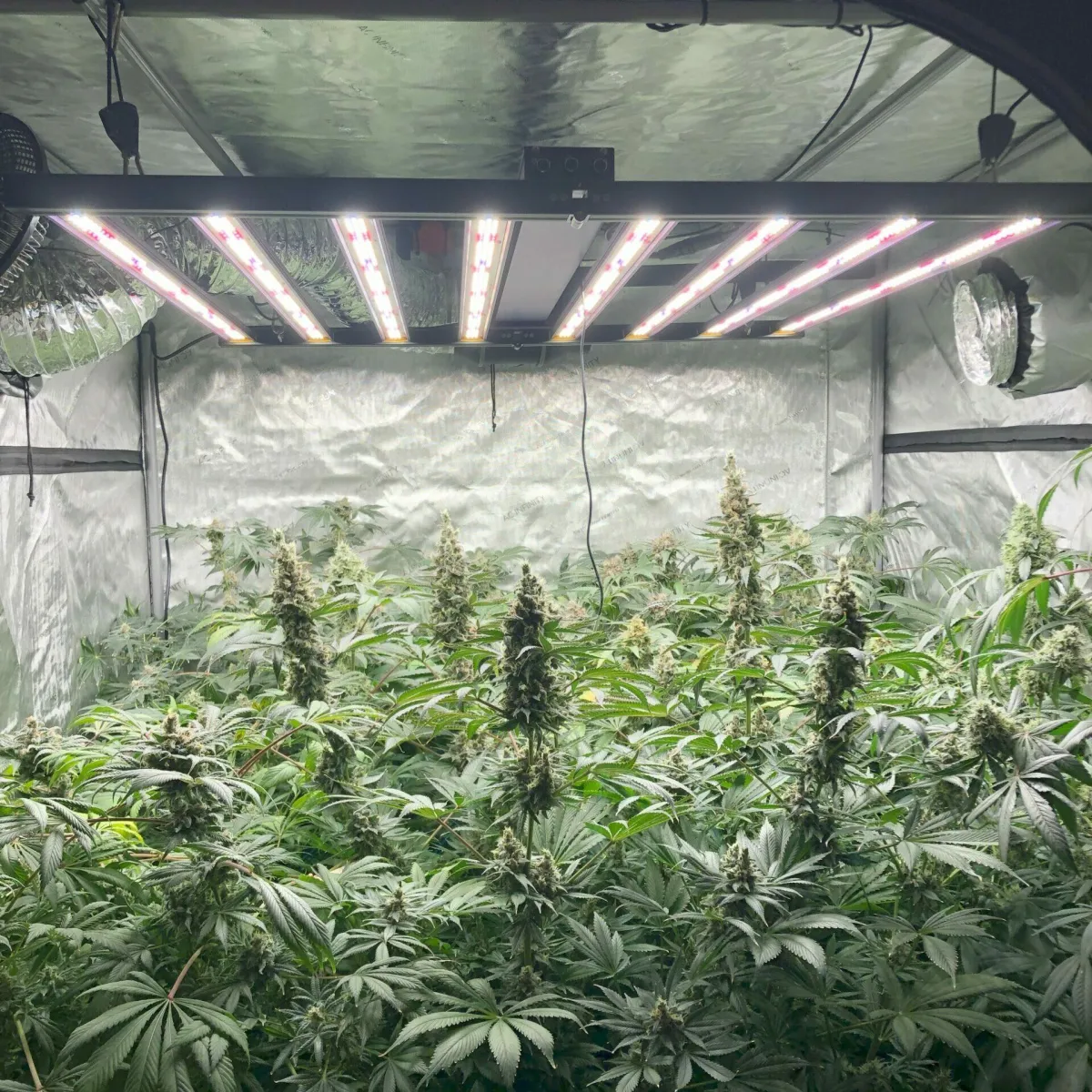
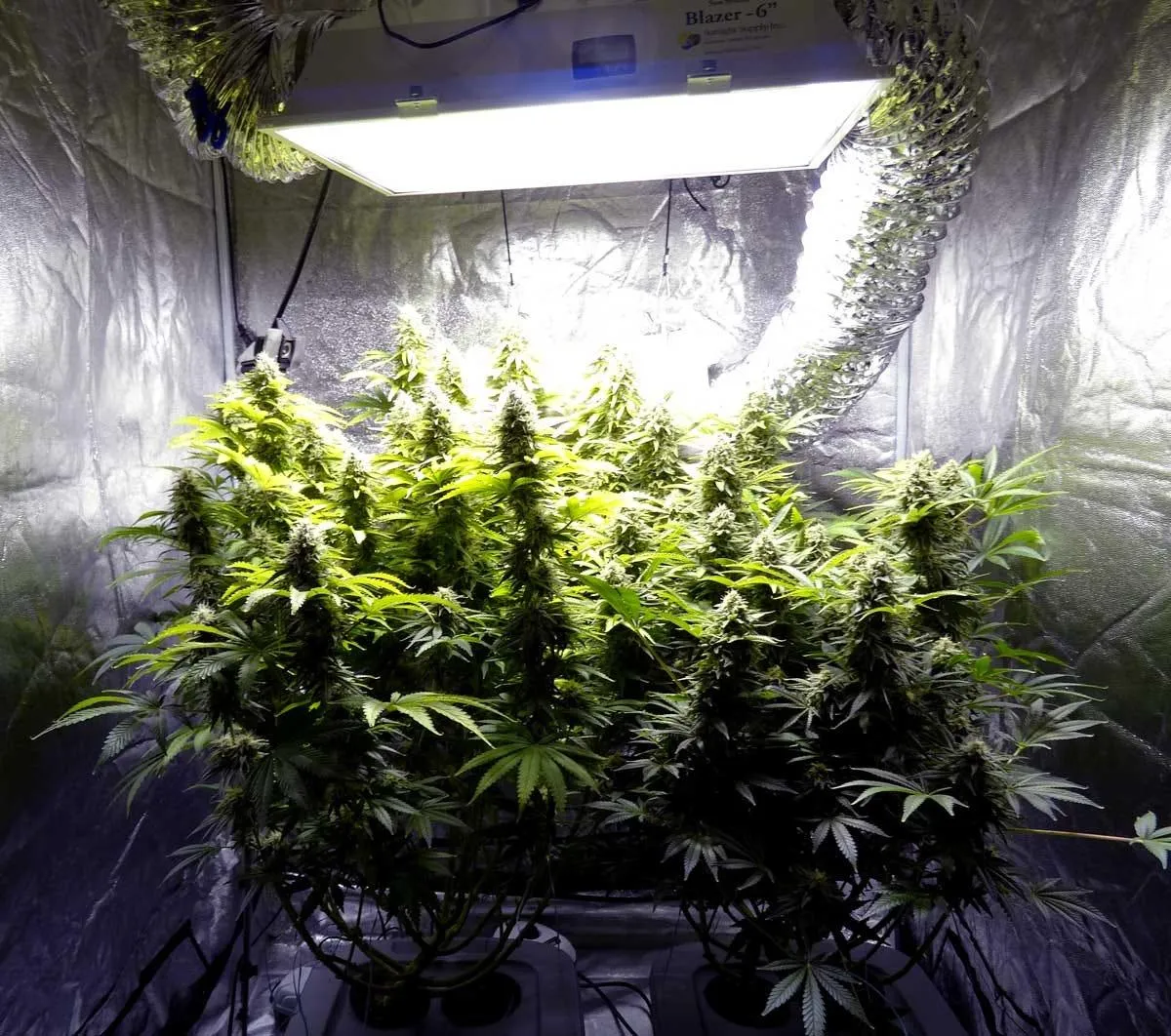
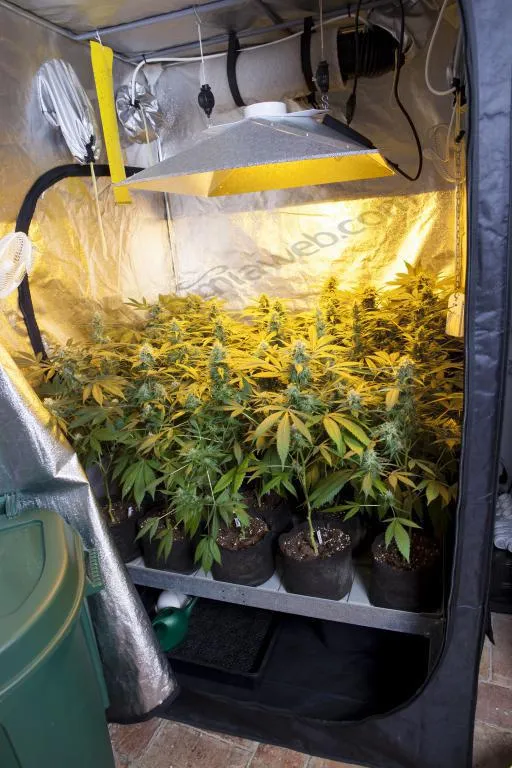
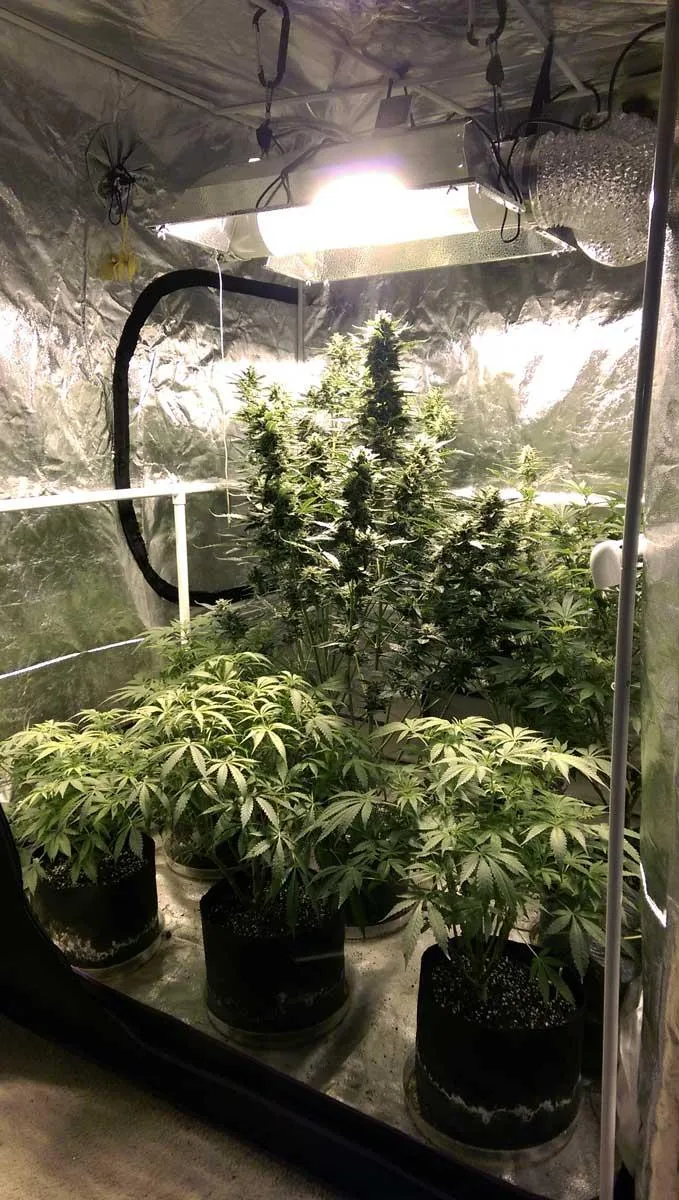
It's Time to Find Your Perfect Strain
Discover the perfect cannabis strains for your home grow with Cannabis Khan's innovative Strain Selection AI Agent! Simply click the button below to access our cutting-edge tool and answer a few quick questions about your grow setup, experience level, and desired effects. Our AI algorithm will analyze thousands of data points to generate personalized strain recommendations tailored to your needs, complete with detailed profiles on yield, flowering time, optimal conditions, and effect/flavor profiles. Take the guesswork out of strain selection and unlock the full potential of your homegrow - click now to find your ideal cannabis match!
Questions? We Have Answers!
Is it legal to grow cannabis at home?
The legality of growing cannabis at home varies depending on your location and the specific laws in your area. Some states and countries have legalized home cultivation for personal use, while others have more restrictive policies. It's crucial to research and understand the laws in your jurisdiction before starting your home grow. Our course provides general information, but it's your responsibility to ensure compliance with local regulations. https://en.wikipedia.org/wiki/Legality_of_cannabis_by_U.S._jurisdiction
How long does it take to grow cannabis from seed to harvest?
The total time from seed to harvest varies depending on the strain, growing conditions, and techniques used. On average, cannabis plants take about 3-5 months to complete their life cycle. This includes the germination phase (1-2 weeks), vegetative phase (3-8 weeks), and flowering phase (6-12 weeks). However, factors such as the specific strain, light cycle, and environmental conditions can influence the growth rate and harvest timeline. Our course provides detailed information on each growth stage and offers tips for optimizing your timeline.
What is your refund policy?
Refund Policy: All sales of our Cannabis DIY course and related digital products are final. Due to the nature of digital products, we are unable to offer returns, refunds, exchanges, or credits for partially used or unused courses, coaching sessions, or other digital products. By completing your purchase, you acknowledge that you have read and agree to this refund policy. If you have any questions or concerns about the course content or your purchase, please contact our customer support team at [email protected] prior to making your purchase.
Get In Touch
Address: 7506 W 10th Avenue, #3, Lakewood Colorado 80214
Email: [email protected]
Phone: (716) 790-9908
Hours of Operation:
Mon - Sat 8am to 6pm
Sunday – Closed

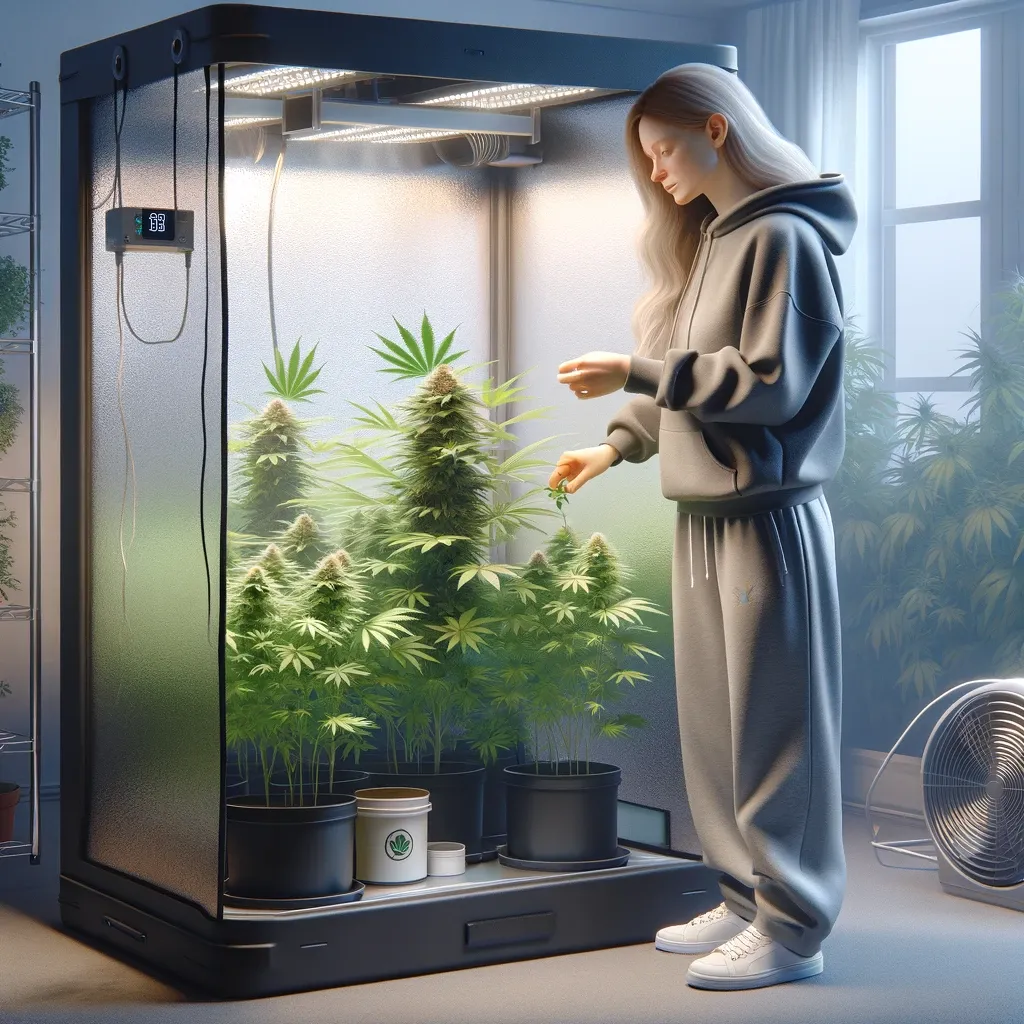
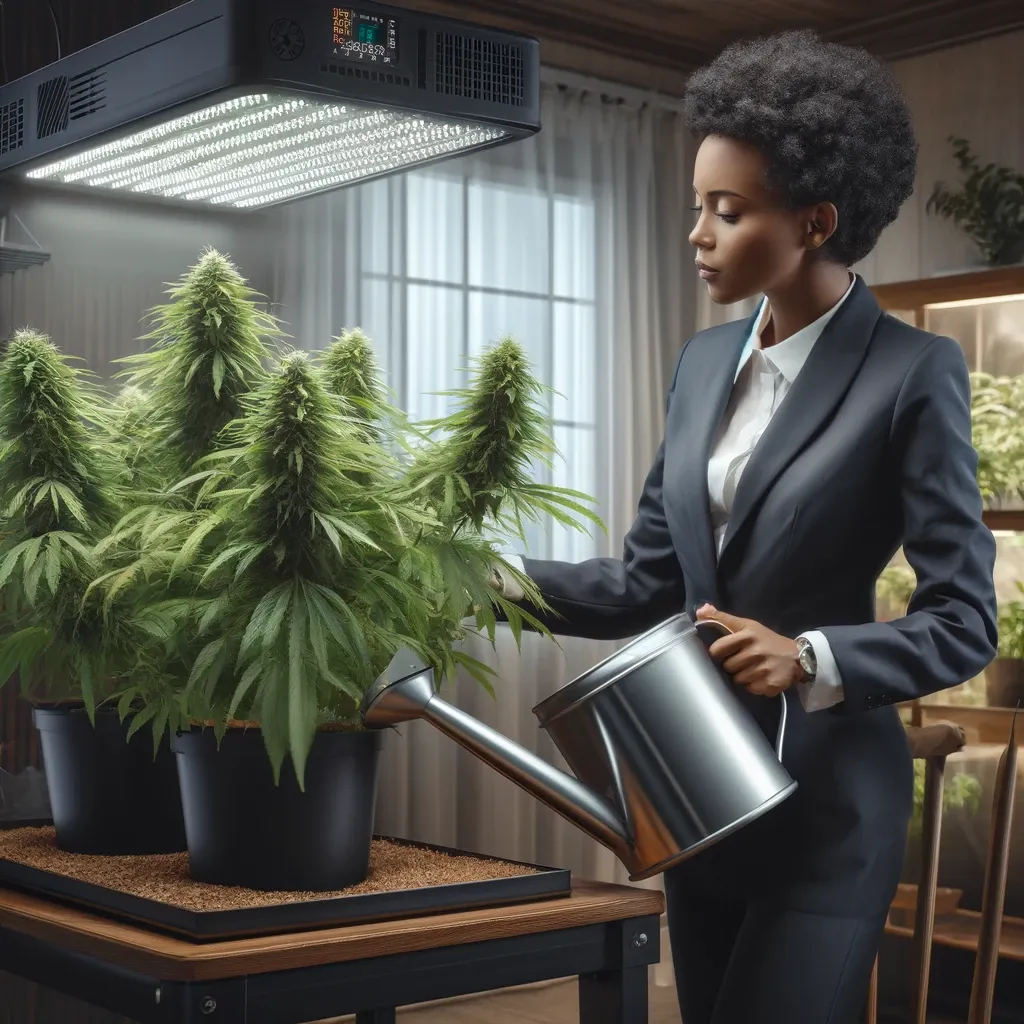

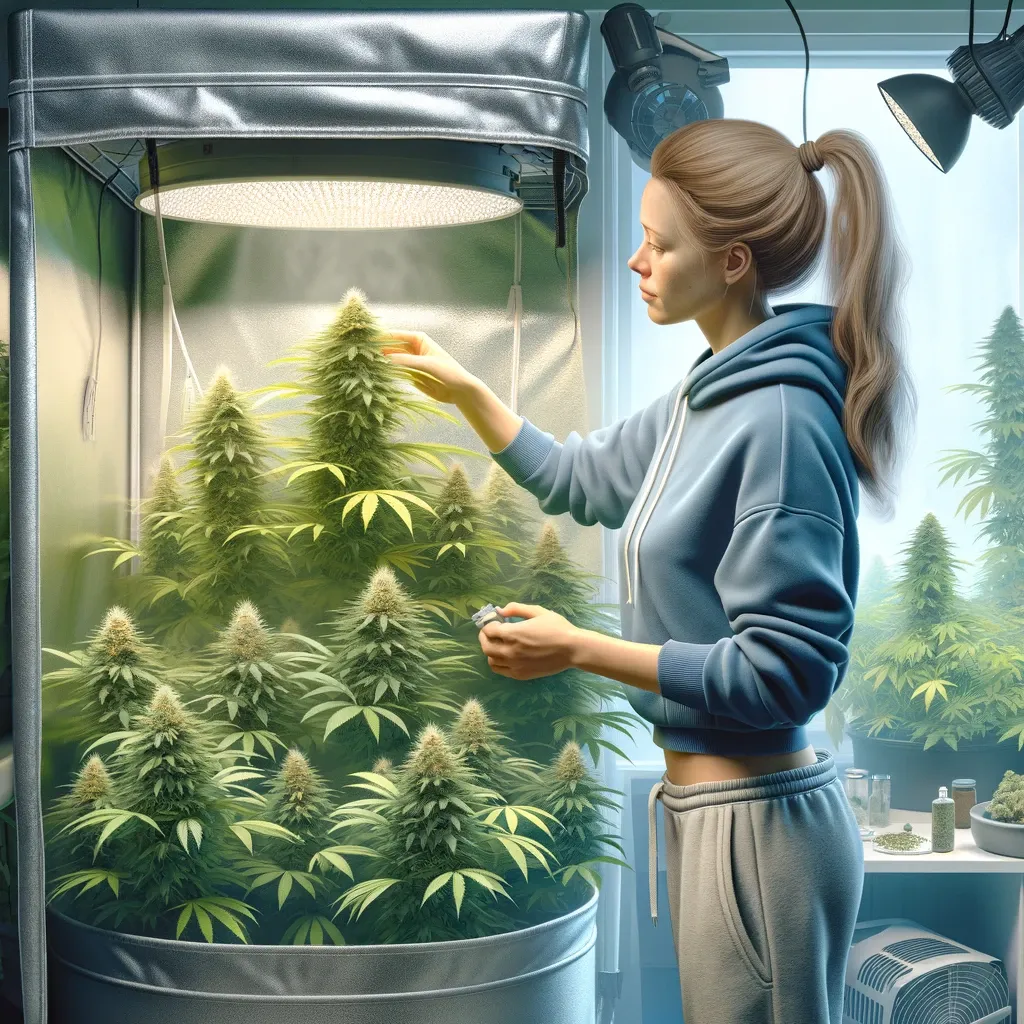
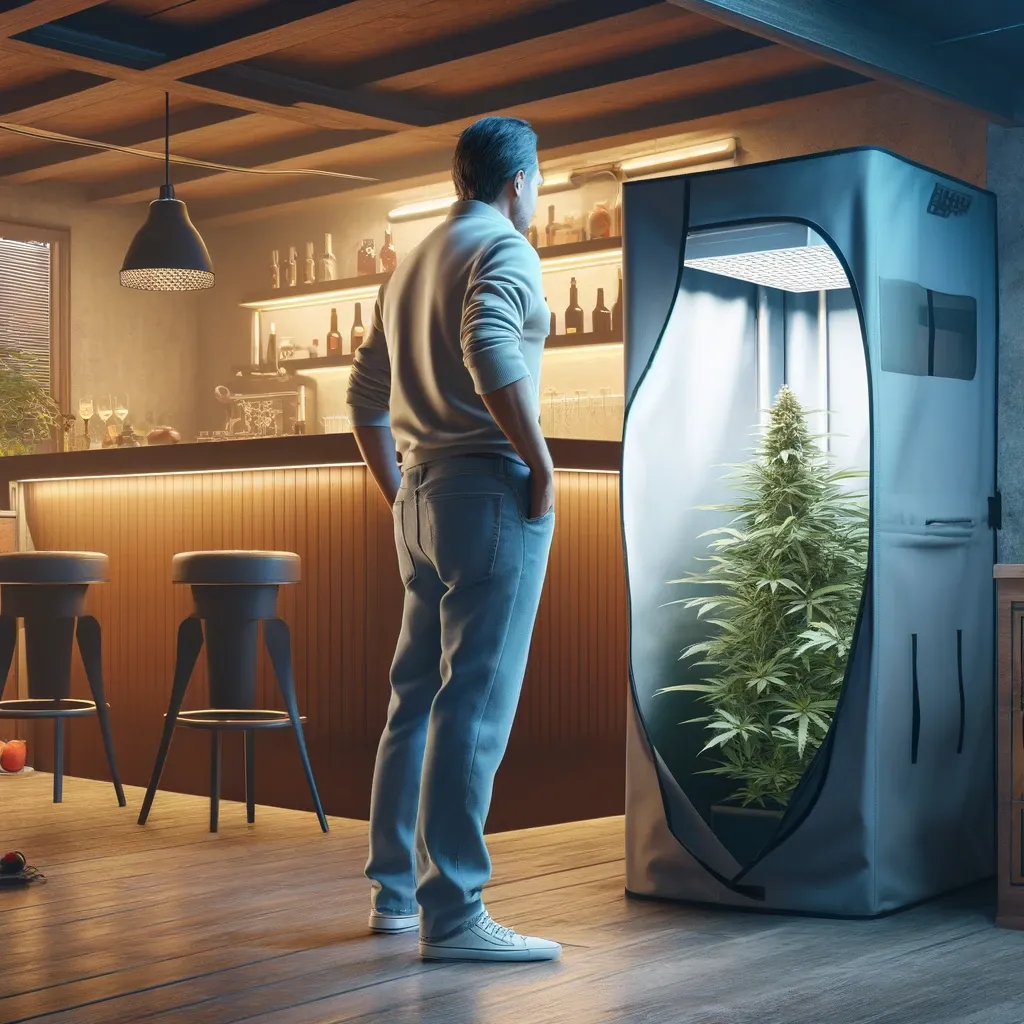
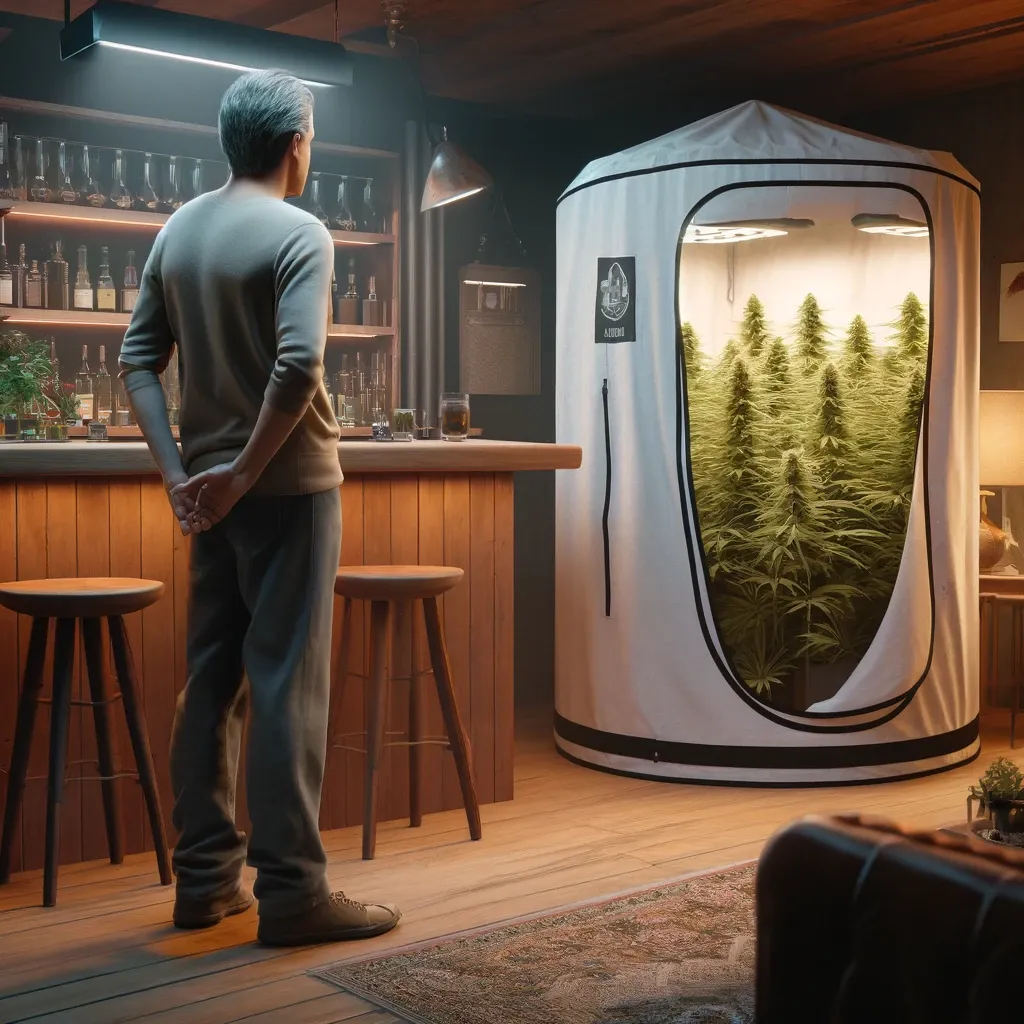





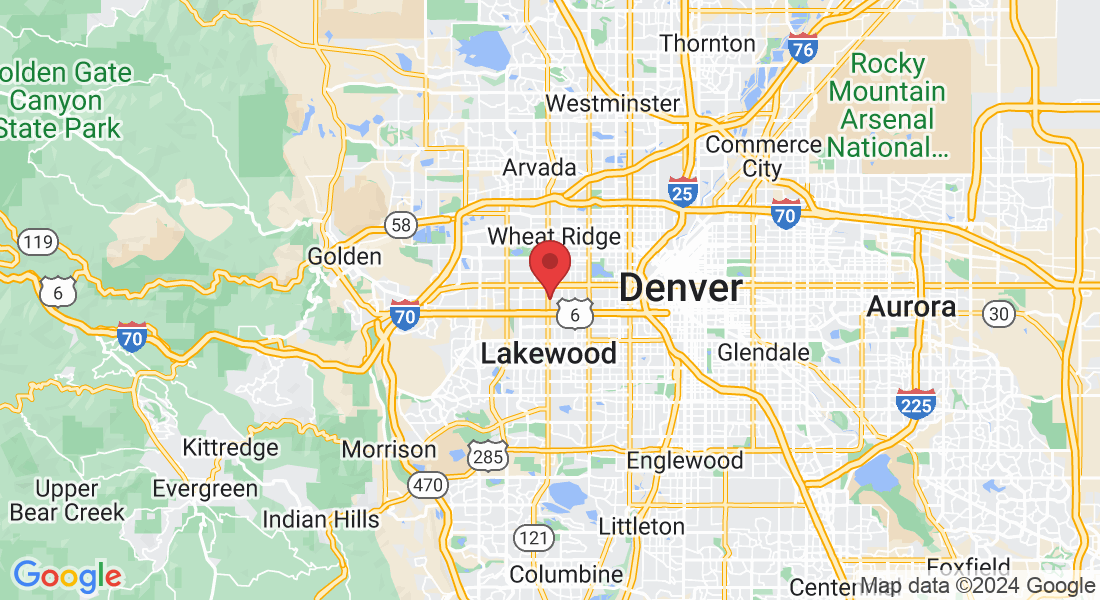
Facebook
Instagram
X
Youtube